
Eliezer
עֵזֶר
ʿēzer
(help)

The Life of Abraham Series by Ray Stedman

“Let us be glad and rejoice and give Him glory, for the marriage of the Lamb has come, and His wife has made herself ready.”
And to her it was granted to be arrayed in fine linen, clean and bright, for the fine linen is the righteous acts of the saints.
Then he said to me, “Write: ‘Blessed are those who are called to the marriage supper of the Lamb!’ ” (Revelation 19)
From Hebrew ('Eli'ezer) meaning "my God is help."
In the Old Testament this is the name of both a servant of Abraham and one of the sons of Moses .
Deuteronomy 33:26
“There is no one like the God of Jeshurun,
Who rides the heavens to help you,
And in His excellency on the clouds.
Deuteronomy 33:29
Happy are you, O Israel!
Who is like you, a people saved by the LORD,
The shield of your help
And the sword of your majesty!
Your enemies shall submit to you,
And you shall tread down their high places.”
Psalm 20:2
May He send you help from the sanctuary,
And strengthen you out of Zion;
Psalm 33:20
Our soul waits for the LORD;
He is our help and our shield.
Psalm 70:5
But I am poor and needy;
Make haste to me, O God!
You are my help and my deliverer;
O LORD, do not delay.
Psalm 89:19
Then You spoke in a vision to Your holy one,
And said: “I have given help to one who is mighty;
I have exalted one chosen from the people.
Psalm 115:9
O Israel, trust in the LORD;
He is their help and their shield.
Psalm 115:10
O house of Aaron, trust in the LORD;
He is their help and their shield.
Psalm 115:11
You who fear the LORD, trust in the LORD;
He is their help and their shield.
Psalm 121:1
A Song of Ascents.
I will lift up my eyes to the hills—
From whence comes my help?
Psalm 121:2
My help comes from the LORD,
Who made heaven and earth.
Psalm 124:8
Our help is in the name of the LORD,
Who made heaven and earth.
Psalm 146:5
Happy is he who has the God of Jacob for his help,
Whose hope is in the LORD his God,
Isaiah 30:5
They were all ashamed of a people who could not benefit them,
Or be help or benefit,
But a shame and also a reproach.”
Ezekiel 12:14
“I will scatter to every wind all who are around him to help him, and all his troops; and I will draw out the sword after them.
Daniel 11:34
“Now when they fall, they shall be aided with a little help; but many shall join with them by intrigue.
Hosea 13:9
“O Israel, you are destroyed,
But your help is from Me.
"The New Testament is in the Old Testament Concealed
The Old Testament is in the New Testament Revealed"
--Chuck Missler |



Abraham's servant found a wife for Isaac.
David Mandel
Reprinted with permission from Who’s Who in the Hebrew Bible (The Jewish Publication Society).
Eliezer of Damascus was the steward of Abraham’s house and his presumed heir, before the birth of Isaac. When Abraham saw that his son Isaac was already forty years old and still unmarried, he decided that the time had come to find a bride for his son. He sent his trusted servant Eliezer to his relatives in Haran, Mesopotamia, with instructions to bring back a bride for Isaac, because he didn’t want his son to marry any of the local Canaanite girls.
Eliezer took with him ten loaded camels and set out for the city of Nahor. On his arrival he made the camels kneel down by the well outside the city, and said to himself:
"O Lord, God of my master Abraham, grant me good fortune this day, and deal graciously with my master Abraham: Here I stand by the spring as the daughters of the townsmen come out to draw water; let the maiden to whom I say, ‘Please, lower your jar that I may drink,’ and who replies, ‘Drink, and I will also water your camels’–let her be the one whom You have decreed for Your servant Isaac. Thereby shall I know that You have dealt graciously with my master (Genesis 24:12–14)."
He had scarcely finished speaking his thoughts aloud when Rebekah came carrying a jar on her shoulder. She descended to the spring, filled her jar, and climbed back up. Eliezer ran to her and asked her if he could drink a little water from her jar. "Drink, my lord," she said (Genesis 24:18).
After he drank, she said, "I will also draw for your camels, until they finish drinking (Genesis 24:19)." Eliezer gazed at her silently while she gave water to the camels. He then gave her a gold earring and two gold bracelets and asked her (Genesis 24:23): "Pray tell me, whose daughter are you? Is there room in your father’s house for us to spend the night?" She replied, "I am the daughter of Bethuel the son of Milcah, whom she bore to Nahor. There is plenty of straw and feed at home, and also room to spend the night (Genesis 24:24–25)."
The man bowed low and blessed the Lord for having guided him to the house of his master’s kinsmen. Rebekah ran to her mother’s house and told her relatives what had happened. Her brother Laban saw the earring and the bracelets on his sister’s hands and ran to the well to invite the man to come to the house.
Eliezer entered the house while his camels were unloaded and given straw. Water was brought to bathe Eliezer’s feet and the feet of the men that came with him.
Food was set before him, but he refused to eat until he told them that Abraham had send him to find a bride for his son and heir and how he had realized that Rebekah was the intended one. Laban and Bethuel answered, "The matter was decreed by the Lord; we cannot speak to you bad or good. Here is Rebekah before you; take her and go and let her be a wife to your master’s son, as the Lord has spoken (Genesis 24:50–51)."
Eliezer, hearing these words, bowed low to the ground before God. Then he took out more silver and gold objects and clothing and gave them to Rebekah. He also gave presents to Laban and to his mother. After this he and his men ate and drank, and they rested in the night. Early next morning, they announced that they wanted to depart. Rebekah’s mother and Laban asked Eliezer if Rebekah could stay with them for another ten days.
"Do not delay me, now that the Lord has made my errand successful. Give me leave that I may go to my master," answered Eliezer (Genesis 24:56). They called Rebekah and said to her, "Will you go with this man?" Rebekah answered, "I will (Genesis 24:58)." Then she, her nurse Deborah, and her maids arose; mounted the camels; and followed Eliezer, while her relatives blessed her.
|


Abraham Dispatches his Faithful Servant Eliezer
to Find a Wife for his son Isaac

From Ray Stedman:
...This is true of this story of Rebekah and Isaac. It is a picture of Pentecost. Here is Abraham standing for God the Father sending his unnamed servant into the far country to take a bride for his son -- to invite her to come, to call, to woo, and to win her -- to bring her back at last to the Father's house where the son is waiting to claim his bride for himself. How beautifully that portrays how God, at the Day of Pentecost, sent his Spirit into the world! It is the Spirit's job to call out a people for God's name, to win a bride for Christ; he has been at this task for almost 2,000 years now, and the Son is waiting to receive that bride. We read in the book of Revelation of the wedding supper of the Lamb, and of the Lord coming to claim his bride for himself, (see Revelation 19:7-9).
Yet despite this general application, we don't want to lose the individual application of these stories. These Old Testament stories are somewhat like dreams. Psychologists tell us that no matter what we dream about, we are always represented. If we dream of an old mule eating hay, that's us. Whatever else our dream may be, somehow we are involved. I think in a sense, this is true of these Old Testament stories. Paul says, "Now these things happened to them as a warning, but they were written down for our instruction, upon whom the end of the ages has come," (1 Corinthians 10:11 RSV). They are not written just for historic reference. They are written to teach us something, and, therefore, we don't want to miss this. Read your Old Testament with this in view, and seek to find what the Spirit of God has for you.
If you are a Christian, where are you in this story of Abraham sending his servant to get a bride for his son Isaac? Well, you say, obviously we are the bride, we are the ones who are called by the Spirit of God. This is true. Every Christian remembers how he sensed at one time the calling of the Spirit of God. We remember how he wooed and won us by the loveliness and beauties which are in Jesus Christ, and by a consciousness of our utter need for him. We were called to love someone we had never seen, and we felt an answering response in our hearts as Christ was painted in vivid colors by the Spirit in our minds. We felt the urge to leave friends and family behind, in the sense of shifting their central place in our affections, and to go after this one who called us. Now we are journeying to meet him at last in that country in the Father's house. We can see ourselves simply here, but this does not exhaust the application of this story, nor does it really disclose the major emphasis.
If you read this chapter through carefully, you will find that the central character is not the bride, Rebekah. Little of her reaction is recorded here; she has sort of a secondary part. The spotlight of the story really follows Abraham's servant. He is the central character. This is a picture, we have already recognized, of the Holy Spirit's work. But remember, the Spirit of God chooses to do his work largely through men and women, through the believers, through the church, through those of us who are his. This is especially true in the work of calling out a people for God's name. God has given us the responsibility and the privilege of being his instruments to call his bride out of the world. So this story becomes a beautiful picture of the whole process of personal evangelism.
The process of bringing others to Christ begins with the command of God the Father:
Now Abraham was old, well advanced in years; and the Lord had blessed Abraham in all things. And Abraham said to his servant, the oldest of his house, who had charge of all that he had, "Put your hand under my thigh, and I will make you swear by the Lord, the God of heaven and of the earth, that you will not take a wife for my son from the daughters of the Canaanites, among whom I dwell, but will go to my country and to my kindred, and take a wife for my son Isaac." The servant said to him, "Perhaps the woman may not be willing to follow me to this land [this man knew women]; must I then take your son back to the land from which you came?" Abraham said to him, "See to it that you do not take my son back there. The Lord, the God of heaven, who took me from my father's house and from the land of my birth, and who spoke to me and swore to me, 'To your descendants I will give this land,' he will send his angel before you, and you shall take a wife for my son from there. But if the woman is not willing to follow you, then you will be free from this oath of mine; only you must not take my son back there." So the servant put his hand under the thigh of Abraham his master, and swore to him concerning this matter. (Genesis. 24:1-9)
The initiative here begins with Abraham. He sends his servant to do this work and binds him to the task with an oath. Putting the hand under the thigh is simply an oriental custom recognizing that the loins of the thigh were the source of life. For the servant, it was a representation of being bound in the very deepest part of his life. This was a solemn oath.
As we apply this to our own situation and see God the Father standing in the place of Abraham here, he is asking every servant to give himself to this task. The servant is unnamed here, I believe, so that you and I can put our names here. We are called by the Father, commanded to go and take a wife for his son. This is not an option with a believer in Jesus Christ. God has said, not only in the typical fashion we see here, but, in direct statements in the Word of God, again and again, in a most solemn form, that the obligation rests upon a believer to give himself to the task of reaching others for Jesus Christ. God has said, "Take a wife for my son." And to this end the Spirit of God has come into our hearts to dwell. His whole purpose of coming into your life and mine is that he might be what he is, and do what he came to do. Our Lord Jesus is the one dwelling within, and we are told what he came to do. He said, "For the son of man came to seek and to save the lost," (Luke 19:10 RSV). If this is what he came to do, we will find him doing it in our lives if we give him the opportunity.
Please notice that the responsibility here is emphasized by the restriction given to the servant. Abraham said to him, "You must not take my son back there. I know how you feel. I know it would be so much easier if you could just take this handsome lad with you. It would be so much easier to convince this girl she ought to come live with him if she could just see him. But don't take Isaac back there!" Why was this odd restriction put upon him? It does seem strange that although it would make the process of courtship so much simpler, he definitely restricts Isaac from going.
The answer is that this is not just an ordinary incident: This is divinely planned, and is intended to exemplify a truth. It illustrates the fact that God's Son is now in his glory and the work of evangelism must go forward in his absence. God does not send Jesus visibly back to earth in order to win the church. How much easier it would seem to be to persuade men and women to believe in him if we could just say, "Well, he is now in San Francisco, and we'd love to take you up there so you could just hear him speak, and see the marks of the nails in his hands. Then you could believe." There is that tendency in our own hearts to think it would go better that way.
But the Lord said, "No." He sent the Spirit of God to do the work, and, in some remarkable way that we will never fully understand, the Spirit of God can make Jesus Christ more real to a human heart than if he stood before him in human form and flesh. This is very obviously true, because in the New Testament we discover that when the disciples were accompanying Jesus, personally, they were constantly in a state of confusion and frustration. They could not understand what he said: They were troubled and disturbed time after time. However, when the Day of Pentecost came, and the Spirit of God flooded their hearts, a light came into their eyes that had never been there before. The Scriptures began to open up for them. They became conscious of the reality of Christ and experienced a joy within that they had never possessed before. It is the work of the Spirit to make Christ real to human hearts. Now, that is why God has laid upon every one of us this obligation to spread his word to others.
There is an imaginary account telling of the time when the Lord ascended into glory. He was met by the angels as he came into the throne room of God, and one of them said to him, "Lord, what are your plans now to propagate the work that you have begun down there? What have you devised to carry on this work in your absence?" The Lord said, "I've called twelve men to follow me and I have taught them and lived with them for 3-1/2 years. I have left them behind to carry on the work." But the angel said to him, "Lord, what if they fail? What if they don't do this job?" And according to the account, the Lord shook his head and said, "Well, I have no other plan." In a sense, this story is true, but I want to hasten to correct the possible false impression that God has left us to do the job wholly in dependence upon ourselves. Nevertheless, it is true that God has no other plan. He will not send his Son back until the appointed time. Nor will he do it in any other way. He has put the Spirit of God in our hearts so that we might be used in this wonderful work of winning brides for his son. This is our responsibility, and the command of the Father's heart.
The major emphasis of this passage is centered on what we might call "the cooperation of the Spirit." This, I think, is the missing note in much personal evangelism. So many men and women have heard the command of God, "Go into all the world and preach the gospel to the whole creation," (Mark 16:15 RSV). They have recognized this is a command, but then they go out acting as though it all depends upon them. The result is that many are laboring in a zeal without knowledge. This is where the buttonholing, grim-faced, fever-eyed fanatic comes from, on the one hand, and, on the other, the timid, blushing, flustered Christian who hardly ever dares to utter a word. There is a failure to recognize that not only has God commanded us to do this, but he has also provided the Spirit by which to do it. This is what we see in the steps which follow. There are five stages pictured here in what happens when you or I go out to reach someone for Christ: First of all, there is expectation.
Then the servant took ten of his master's camels and departed, taking all sorts of choice gifts from his master; and he arose, and went to Mesopotamia, to the city of Nahor. And he made the camels kneel down outside the city by the well of water at the time of evening, the time when women go out to draw water. And he said, "O Lord, God of my master Abraham, grant me success today, I pray thee, and show steadfast love to my master Abraham. Behold, I am standing by the spring of water, and the daughters of the men of the city are coming out to draw water. Let the maiden to whom I shall say, 'Pray let down your jar that I may drink,' and who shall say, 'Drink, and I will water your camels' -- let her be the one whom thou hast appointed for thy servant Isaac. By this I shall know that thou hast shown steadfast love to my master." (Genesis 24:10-14 RSV)
Now here is a man expecting God to work. He does not go into this land, and say to himself, "Well now, the whole job is up to me. I've got to find this girl, and how in the world am I going to find the right one? And after that, I must persuade her to come. How am I going to do that?" It is very simple for this man because he knows he is not left alone to do this task. An invisible partner is at work, preparing the way for him. I wish we would learn this lesson about our own witness. God has not left it to us to do alone. The work of reaching men and women for Christ is not a matter of human persuasion, but is a divine call. God is at work to move, shape, and develop the lives and hearts of all. Our job is simply to recognize this.
Do you notice how Abraham's servant does it? First of all, he prays, revealing his expectation that God is at work. In his simple prayer he asks God to make the way clear, to indicate the one to whom God would have him speak. As he prays about his problem, he expects God to answer. This is a wonderful concept to remember when witnessing. When I get aboard a plane or train or go someplace where I may be in contact with someone who doesn't know the Lord, I ask God to indicate who is the one he wants me to talk with. Maybe there is no one; maybe the Lord wants me to spend my time reading or studying. But very likely he does have someone. I don't know who God is working with, but I know that he will direct me through ways of which I am hardly conscious.
When I get on the train, I find the best seat first. That is the obvious thing to do. Then I trust that the man who sits down beside me may be that man, or the one in front of me, or the one behind me. But I don't know. It may be the fellow who is to get on at a station down the line, or the one that I will meet in the washroom, or the porter. I don't know. Well, how do I find out?
Let's look at the next step. The first step was expectation; the next one is confirmation:
Before he had done speaking, behold, Rebekah, who was born to Bethuel the son of Milcah, the wife of Nahor, Abraham's brother, came out with her water jar upon her shoulder. The maiden was very fair to look upon, a virgin, whom no man had known. She went down to the spring, and filled her jar, and came up. Then the servant ran to meet her, and said, "Pray give a little water to drink from your jar." She said, "Drink, my lord"; and she quickly let down her jar upon her hand, and gave him a drink. When she had finished giving him a drink, she said, "I will draw for your camels also, until they have done drinking." So she quickly emptied her jar into the trough and ran again to the well to draw, and she drew for all his camels. The man gazed at her in silence to learn whether the Lord had prospered his journey or not. (Genesis. 24:15-21 RSV)
Now here is the confirmation. The man gazed at her in silence, we read. If we stopped there we might think it was because he was so amazed at a teenage girl so willing to work. I don't know how authentic it is, but I am told that a camel can drink twenty-one gallons of water at a sitting, and she drew water for all his camels. No wonder he gazed at her in silence. Specifically, though, we are told that it was to learn whether the Lord had prospered his journey or not. "Is this the one, Lord?" As he watched her he knew that this was the one, because she did what he had asked the Lord as a sign that she should do.
I don't think it is wise to ask for particular signs in every case. Sometimes we invent these signs in our own mind and use them as an excuse for not doing any witnessing. If we are expecting God to show us someone to talk with, he will indicate to us whom he has prepared.
Many years ago, I was on my way out to Japan one summer, waiting in the airport at Honolulu for a plane to Tokyo. It was early in the morning and the airport was almost deserted. I bought a newspaper to read as I waited for my flight. In it I read an account of a young Filipino eye doctor who was in Honolulu on his way home to Manila. He was a surgeon who had perfected an operation no one else had done, and he had been demonstrating it to the New York doctors. I read through the account, along with other things, and thought nothing more of it. When the time came I boarded my plane, and sat down in the most comfortable seat to wait for the take-off.
Soon a man came along and sat down beside me. I turned to say, "Hello," and saw that it was a young Filipino. I still didn't make any connection but asked him his name, and he told me he was a doctor. So I said, "What kind of a doctor are you?" He said. "I'm an eye surgeon." Then I remembered the newspaper account I had just read about this young Filipino eye surgeon, and we had wonderful fellowship which led quickly to a discussion of the Word of God. When I left him, I gave him a New Testament, and when I met him later, in Manila, he told me he'd been reading it every day since. Now this is the confirmation, some little thing by which God says "Here is the one with whom I've been working, and here you are beside him." The Lord brought the two together. You can expect wonderful experiences to happen if you begin to watch for God to work through you like this, alert for the indication of the Spirit at work.
After the confirmation comes the third stage, the preparation:
When the camels had done drinking, the man took a gold ring weighing a half shekel, and two bracelets for her arms weighing ten gold shekels, and said, "Tell me whose daughter you are. Is there room in your father's house for us to lodge in?" She said to him, "I am the daughter of Bethuel the son of Milcah, whom she bore to Nahor." She added, "We have both straw and provender enough, and room to lodge in." The man bowed his head and worshiped the Lord, and said, "Blessed be the Lord, the God of my master Abraham, who has not forsaken his steadfast love and his faithfulness toward my master. As for me, the Lord has led me in the way to the house of my master's kinsmen." (Genesis. 24:22-27 RSV)
Abraham's servant knows that this is the right girl. He has had the sign confirmed. But he doesn't immediately open up the Scriptures to Romans 3:23 and begin to blast her with her status as a sinner. He doesn't brashly chasten her with the Lord's wrath and scare her away, as we sometimes do. Nor does he immediately start talking about Isaac. Instead, he wisely arranges for private conversation allowing sufficient time to make a proper contact. He bathes the whole matter again in prayer and thanksgiving and waits for a suitable time to talk.
I think this is a very important step. Sometimes in our zeal we jump down people's throats and frighten them. causing them to back away from us. We must remember to take time to lay ample groundwork and to prepare for a proper presentation. Perhaps an invitation to dinner is better than just leaning over the back fence and trying to give the gospel in five minutes.
The fourth step is the presentation itself. In the next section we shall find the whole story spelled out plainly and frankly.
So he said, "I am Abraham's servant. The Lord has greatly blessed my master, and he has become great; he has given him flocks and herds, silver and gold, menservants and maidservants, camels and asses. And Sarah my master's wife bore a son to my master when she was old; and to him he has given all that he has. My master made me swear, saying, 'You shall not take a wife for my son from the daughters of the Canaanites, in whose land I dwell; but you shall go to my father's house and to my kindred, and take a wife for my son.' I said to my master, 'Perhaps the woman will not follow me.' But he said to me, 'The Lord, before whom I walk, will send his angel with you and prosper your way; and you shall take a wife for my son from my kindred and from my father's house; then you will be free from my oath, when you come to my kindred; and if they will not give her to you, you will be free from my oath.'
"I came today to the spring, and said, 'O Lord, the God of my master Abraham, if now thou wilt prosper the way which I go, behold, I am standing by the spring of water; let the young woman who comes out to draw, to whom I shall say, "Pray give me a little water from your jar to drink," and who will say to me, "Drink, and I will draw for your camels also," let her be the woman whom the Lord has appointed for my master's son.'
"Before I had done speaking in my heart, behold, Rebekah came out with her water jar on her shoulder; and she went down to the spring, and drew. I said to her, 'Pray let me drink.' She quickly said, 'Drink, and I will give your camels drink also.' So I drank, and she gave the camels drink also. Then I asked her, 'Whose daughter are you?' She said, 'The daughter of Bethuel, Nahor's son, whom Milcah bore to him.' So I put the ring on her nose, the bracelets on her arms. Then I bowed my head and worshiped the Lord, and blessed the Lord, the God of my master Abraham, who had led me by the right way to take the daughter of my master's kinsman for his son. Now then, if you will deal loyally and truly with my master, tell me; and if not, tell me; that I may turn to the right hand or to the left."
Then Laban and Bethuel answered, "The thing comes from the Lord; we cannot speak to you bad or good. Behold, Rebekah is before you, take her and go, and let her be the wife of your master's son, as the Lord has spoken."
When Abraham's servant heard their words, he bowed himself to the earth before the Lord. And the servant brought forth jewelry of silver and of gold, and raiment, and gave them to Rebekah; he also gave to her brother and to her mother costly ornaments. (Genesis 24:34-53 RSV)
The servant leaves nothing out, but is forthright and candid. He begins with the glories of Abraham, telling about all his wealth flocks, herds, silver and gold, servants, camels and asses. Why? Because this is the inheritance of the son. Then he recounts how God led him along the way, i.e., he gives his own personal testimony about it. He ends by presenting to her the gifts Isaac had sent along, the sample of the riches he was offering to her.
What a picture of how we should talk to those who are interested and whom the Lord is seeking to reach by focusing it all on Christ! Our job, you see, is not to change people's habits. We are not out to get people to stop drinking, smoking, dancing, going to movies, etc. That isn't our concern, our job is to win them to Christ, not to make church members out of them. This servant did not go into the far country and try to start a "Fans for Isaac Club." His job was to win her heart and bring her out of the far country to the son, and that is our job, also.
The fifth and last state is the actual invitation:
And he and the men who were with him ate and drank, and they spent the night there. When they arose in the morning, he said, "Send me back to my master." Her brother and her mother said, "Let the maiden remain with us a while, at least ten days; after that she may go." [There was a reluctance here to let her go.] But he said to them, "Do not delay me, since the Lord has prospered my way; let me go that I may go to my master." They said, "We will call the maiden, and ask her." And they called Rebekah, and said to her, "Will you go with this man?" She said, "I will go." (Genesis. 24:54-58 RSV)
There is the invitation, the altar call if you please. It climaxes the assault on the will of this girl. It is not an easy choice that she is asked to make. It is revolutionary, disturbing, upsetting. All of her life she has been the protected jewel of that household. She has been kept within the family bosom, cared for, protected and guarded, and now she is asked to go with a man whom she has just met a day or two before, to meet another man who is an utter stranger to her. Yet something about the winsomeness of his appeal, his forthrightness, the glory and attractiveness of what she has heard, has won her heart. She is ready to go. We need to recognize that the invitation we give to men and women to become Christians is not an easy choice. It is a revolutionary one. We must clarify the matter, and lay it before them: "Will you go?" And she said, "I will go."
Finally, in the last scene, we see the communion with the son. The work of the Trinity is evident throughout this story. It begins with the command of the Father, proceeds with the cooperation of the Spirit, and ends with the communion with the Son. This is a delightful scene at the end where heart meets heart:
Now Isaac had come from Beer-lahai-roi, and was dwelling in the Negeb. And Isaac went out to meditate in the field in the evening; and he lifted up his eyes and looked, and behold, there were camels coming. And Rebekah lifted up her eyes, and when she saw Isaac, she alighted from the camel, and said to the servant, "Who is the man yonder, walking in the field to meet us?" The servant said, "It is my master." So she took her veil and covered herself. And the servant told Isaac all the things that he had done. Then Isaac brought her into the tent, and took Rebekah, and she became his wife; and he loved her. So Isaac was comforted after his mother's death. (Genesis 24:62-67 RSV)
The last words of the servant are here. When Rebekah sees Isaac walking in the field, she says, "Who is this man!" And the servant's words are, "It is my master." This is the place to which we are to bring men and women. The time comes in our dealing with them when we must stop talking about our own personal testimony. We must turn them to look at the one who is winning their hearts, and say, "There he is, it's the Master. You deal with him now, just talk directly with him."
I think the conversation here when the two met was probably rather stumbling at first. She was very shy and he very reserved. She got off her camel, all a twitter inside. She put her veil over her face so he wouldn't see how she was blushing. This strong, manly man came up to her, and said, "Hello." She said, "Hello." He said, "Are you Rebekah?" She said, "Yes," and dropped her eyes. Then he said, "I'm Isaac." (She knew it all the time.) He said, "You can call me Ike." She said, "Well, my friends call me 'Becky.'" And off they go, hand in hand.
But look at the servant standing by. Can't you imagine him grinning from ear to ear, registering the joy in his heart at the fulfillment of his mission in bringing a bride for Isaac. Doesn't it remind you of those words of John the Baptist when he introduced the Lord Jesus to Israel and his disciples left him and went to follow the Lord? Someone asked him how he felt, and he said, "He who has the bride is the bridegroom; the friend of the bridegroom who stands and hears him rejoices greatly at the bridegroom's voice; therefore, this joy of mine is now full. He must increase, but I must decrease," (John 3:29-30 RSV). We are like that servant. We can expect the same brimming of joy in our own hearts as we watch someone join together with his Lord in new life.
Do you see now that the story of Abraham's servant is your story as well? (Here Comes the Bride by Ray C. Stedman).

Who is that Holy Spirit?
.jpg)



For the majority of Christian denominations, the Holy Spirit, or Holy Ghost, is believed to be the third person of the Trinity, a Triune God manifested as God the Father, God the Son, and God the Holy Spirit, each entity itself being God. Non-trinitarian Christians, who reject the doctrine of the Trinity, differ significantly from mainstream Christianity in their beliefs about the Holy Spirit. In Christian theology, pneumatology refers to the study of the Holy Spirit. Due to Christianity's historical relationship with Judaism, theologians often identify the Holy Spirit with the concept of the Ruach Hakodesh in Jewish scripture, on the theory that Jesus (who was Jewish) was expanding upon these Jewish concepts. Similar names, and ideas, include the Ruach Elohim (Spirit of God), Ruach YHWH (Spirit of Yahweh), and the Ruach Hakodesh (Holy Spirit). In the New Testament it is identified with the Spirit of Christ, the Spirit of Truth, the Paraclete and the Holy Spirit.
The New Testament details a close relationship between the Holy Spirit and Jesus during his earthly life and ministry. The Gospels of Matthew and Luke and the Nicene Creed state that Jesus was "conceived by the Holy Spirit, born of the Virgin Mary". The Holy Spirit descended on Jesus like a dove during his baptism, and in his Farewell Discourse after the Last Supper Jesus promised to send the Holy Spirit to his disciples after his departure.
The Holy Spirit is referred to as "the Lord, the Giver of Life" in the Nicene Creed, which summarizes several key beliefs held by many Christian denominations. The participation of the Holy Spirit in the tripartite nature of conversion is apparent in Jesus' final post-resurrection instruction to his disciples at the end of the Gospel of Matthew (28:19), "Make disciples of all the nations, baptizing them into the name of the Father and of the Son and of the Holy Spirit." Since the first century, Christians have also called upon God with the trinitarian formula "Father, Son and Holy Spirit" in prayer, absolution and benediction. In the book of the Acts of the Apostles the arrival of the Holy Spirit happens fifty days after the resurrection of the Christ, and is celebrated in Christendom with the feast of Pentecost.
The Koine Greek word pneûma (πνεῦμα, pneuma) is found around 385 times in the New Testament, with some scholars differing by three to nine occurrences. Pneuma appears 105 times in the four canonical gospels, 69 times in the Acts of the Apostles, 161 times in the Pauline epistles, and 50 times elsewhere. These usages vary: in 133 cases it refers to "spirit" and in 153 cases to "spiritual". Around 93 times, the reference is to the Holy Spirit, sometimes under the name pneuma and sometimes explicitly as the pneûma tò Hagion Πνεῦμα τὸ Ἅγιον). (In a few cases it is also simply used generically to mean wind or life. It was generally translated into the Vulgate as Spiritus and Spiritus Sanctus.
The English terms "Holy Ghost" and "Holy Spirit" are complete synonyms: one derives from the Old English gast and the other from the Latin loanword spiritus. Like pneuma, they both refer to the breath, to its animating power, and to the soul. The Old English term is shared by all other Germanic languages (compare, e.g., the German Geist) and it is older; the King James Bible typically uses "Holy Ghost". Beginning in the 20th century, translations overwhelmingly prefer "Holy Spirit", partly because the general English term "ghost" has increasingly come to refer only to the spirit of a dead person.
Hebrew Bible
Source:
- וְר֣וּחַ קָדְשׁ֑וֹ ( Ruah qadesow) – His Holy Spirit (Isaiah 63:10)
- וְר֣וּחַ קָ֝דְשְׁךָ֗ ( Ruach qadseḵa) – Your Holy Spirit (Psalm 51:11)
- וְר֣וּחַ אֱלֹהִ֔ים ( Ruach Elohim) – Spirit of God (Genesis 1:2)
- נִשְׁמַת־ר֨וּחַ חַיִּ֜ים ( Nismat Ruach Hayyim) – The Breath of the Spirit of Life (Genesis 7:22)
- ר֣וּחַ יְהוָ֑ה ( Ruach YHWH) – Spirit of YHWH (Isaiah 11:2)
- ר֧וּחַ חָכְמָ֣ה וּבִינָ֗ה ( Ruach hakmah ubinah) – Spirit of Wisdom and Understanding (Isaiah 11:2)
- ר֤וּחַ עֵצָה֙ וּגְבוּרָ֔ה ( Ruach esah ugeburah) – Spirit of Counsel and Might (Isaiah 11:2)
- ר֥וּחַ דַּ֖עַת וְיִרְאַ֥ת יְהוָֽה ( Ruach daat weyirat YHWH) – Spirit of Knowledge and Fear of YHWH (Isaiah 11:2)
New Testament
- πνεύματος ἁγίου (Pneumatos Hagiou) – Holy Spirit (Matthew 1:18)
- πνεύματι θεοῦ (Pneumati Theou) – Spirit of God (Matthew 12:28)
- ὁ παράκλητος (Ho Paraclētos) – The Comforter, cf. Paraclete John 14:26 (John 16:7)
- πνεῦμα τῆς ἀληθείας (Pneuma tēs Alētheias) – Spirit of Truth (John 16:13)
- Πνεῦμα Χριστοῦ (Pneuma Christou) – Spirit of Christ (1 Peter 1:11)
Depending on context:
- πνεῦμα (Pneuma) – Spirit (John 3:8)
- Πνεύματος (Pneumatos) – Spirit (John 3:8)

What the Hebrew Bible calls "Spirit of God" and "Spirit of Elohim" is called in the Talmud and Midrash "Holy Spirit" (ruacḥ ha-kodesh). Although the expression "Holy Spirit" occurs in Psalm 51:11 and in Isaiah 63:10–11, it had not yet acquired quite the same meaning which was attached to it in rabbinical literature: in the latter it is equivalent to the expression "Spirit of the Lord". In Gen.1:2 God's spirit hovered over the form of lifeless matter, thereby making the Creation possible. Although the ruach ha-kodesh may be named instead of God, it was conceived of as being something distinct; and, like everything earthly that comes from heaven, the ruach ha-kodesh is composed of light and fire. The most characteristic sign of the presence of the ruach ha-kodesh is the gift of prophecy. The use of the word "ruach" (Hebrew: "breath," or "wind") in the phrase ruach ha-kodesh seems to suggest that Judaic authorities believed the Holy Spirit was a kind of communication medium like the wind. The spirit talks sometimes with a masculine and sometimes with a feminine voice; the word ruacḥ is both masculine and feminine.
New Testament
The term Holy Spirit appears at least 90 times in the New Testament. The sacredness of the Holy Spirit to Christians is affirmed in all three Synoptic Gospels (Matthew 12:30-32, Mark 3:28-30 and Luke 12:8-10) which proclaim that blasphemy against the Holy Spirit is the unforgivable sin. The participation of the Holy Spirit in the Trinity is suggested in Jesus' final post-Resurrection instruction to his disciples at the end of the Gospel of Matthew (28:19): "Go ye therefore, and make disciples of all the nations, baptizing them into the name of the Father and of the Son and of the Holy Spirit."

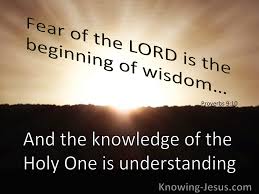


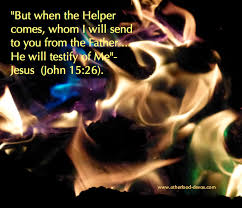
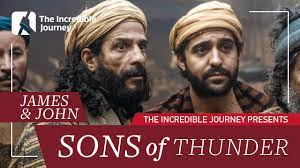
Then the mother of Zebedee’s sons came to Him with her sons, kneeling down and asking something from Him.
And He said to her, “What do you wish?”She said to Him, “Grant that these two sons of mine may sit, one on Your right hand and the other on the left, in Your kingdom.”
But Jesus answered and said, “You do not know what you ask. Are you able to drink the cup that I am about to drink, and be baptized with the baptism that I am baptized with?”
They said to Him, “We are able.”
So He said to them, “You will indeed drink My cup, and be baptized with the baptism that I am baptized with;but to sit on My right hand and on My left is not Mine to give, but it is for those for whom it is prepared by My Father.”
And when the ten heard it, they were greatly displeased with the two brothers. But Jesus called them to Himself and said, “You know that the rulers of the Gentiles lord it over them, and those who are great exercise authority over them. Yet it shall not be so among you; but whoever desires to become great among you, let him be your servant.
And whoever desires to be first among you, let him be your slave just as the Son of Man did not come to be served, but to serve, and to give His life a ransom for many.”
(Matthew 20:20-28)
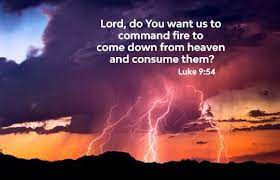
|

The Bride of Christ
"Who is this who looks forth as the dawn,
Fair as the moon,
Bright as the sun,
Terrible as an army with banners? "
(Song of Solomon 6:10)

Don't Be Left Behind!

‘It is I, Jesus, who sent my angel to you with this testimony for the churches.
I am the root and the descendant of David, the bright morning star.’
The Spirit and the bride say, ‘Come.’
And let everyone who hears say, ‘Come.’
And let everyone who is thirsty come.
Let anyone who wishes take the water of life as a gift.
(Revelation 22:16, 17)

Miscellaneous Reading
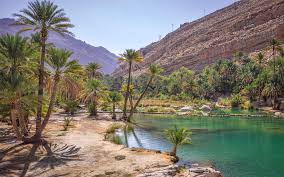

To "know someone" may mean you have a casual or distant acquaintance with that person.
Knowing God through Jesus Christ is life's most intimate relationship.
"Jesus has no favorites but He does have many intimates" (Ray Stedman)

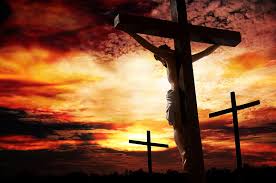
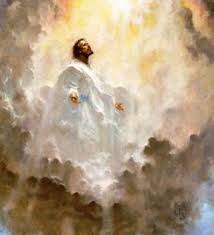
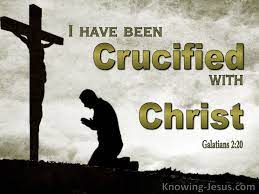
Then the angel showed me the river of the water of life, bright as crystal, flowing from the throne of God and of the Lamb through the middle of the street of the city.
On either side of the river is the tree of life with its twelve kinds of fruit, producing its fruit each month; and the leaves of the tree are for the healing of the nations.
Nothing accursed will be found there any more.
But the throne of God and of the Lamb will be in it, and his servants will worship him; they will see his face, and his name will be on their foreheads.
And there will be no more night; they need no light of lamp or sun, for the Lord God will be their light, and they will reign for ever and ever.
And he said to me, ‘These words are trustworthy and true, for the Lord, the God of the spirits of the prophets, has sent his angel to show his servants what must soon take place.’
‘See, I am coming soon! Blessed is the one who keeps the words of the prophecy of this book.’
I, John, am the one who heard and saw these things. And when I heard and saw them, I fell down to worship at the feet of the angel who showed them to me; but he said to me, ‘You must not do that! I am a fellow-servant with you and your comrades the prophets, and with those who keep the words of this book. Worship God!’
And he said to me, ‘Do not seal up the words of the prophecy of this book, for the time is near.
Let the evildoer still do evil, and the filthy still be filthy, and the righteous still do right, and the holy still be holy.’
‘See, I am coming soon; my reward is with me, to repay according to everyone’s work.
I am the Alpha and the Omega, the first and the last, the beginning and the end.’
Blessed are those who wash their robes, so that they will have the right to the tree of life and may enter the city by the gates.
Outside are the dogs and sorcerers and fornicators and murderers and idolaters, and everyone who loves and practices falsehood.
‘It is I, Jesus, who sent my angel to you with this testimony for the churches.
I am the root and the descendant of David, the bright morning star.’
The Spirit and the bride say, ‘Come.’
And let everyone who hears say, ‘Come.’
And let everyone who is thirsty come.
Let anyone who wishes take the water of life as a gift.
I warn everyone who hears the words of the prophecy of this book:
if anyone adds to them, God will add to that person the plagues described in this book;
if anyone takes away from the words of the book of this prophecy,
God will take away that person’s share in the tree of life and in the holy city, which are described in this book.
The one who testifies to these things says, ‘Surely I am coming soon.’
Amen. Come, Lord Jesus!
The grace of the Lord Jesus be with all the saints. Amen.
Revelation 22



Notes by Lambert Dolphin

Email Lambert
Lambert Dolphin's Place (Home Page)
Lambert Dolphin's Original Web Site (1995)
Lambert's Personal Testimony
Newsletters by Lambert
Recent Articles (since 2018)
| The Temple Mount in Jerusalem: (http://templemount.org)
For more information on the Temple Mount in Jerusalem, research concerning the location of the First and Second Temples and recent developments there see our separate web site. Maps and history of Jerusalem are brought up to date with MP3 lectures by leading scholars and research papers concerning the location of the Jewish Temples and plans for a Third Temple. Developed with the help of Mike Kollen, Jim Milligan and Norma Robertson.
|
 |
 June 29, 2021. June 9, 2023.
June 29, 2021. June 9, 2023.
![]()
![]()



.jpg)




















 June 29, 2021. June 9, 2023.
June 29, 2021. June 9, 2023.